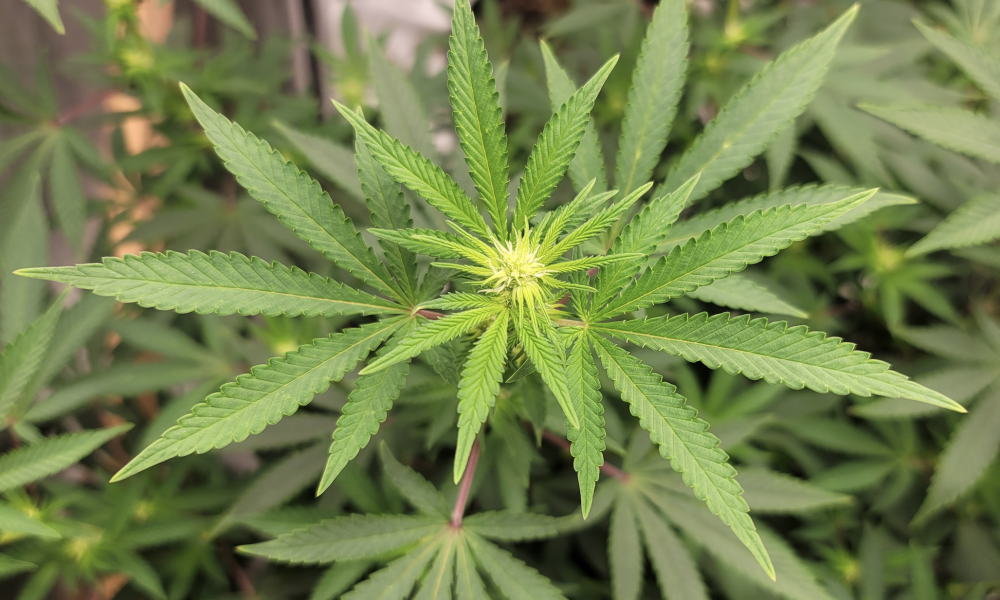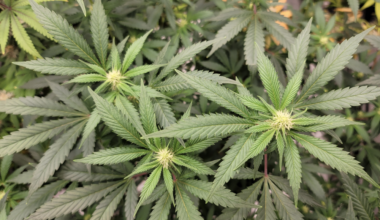A newly revised bipartisan marijuana research bill that was introduced in Congress on Thursday is being fast-tracked, with floor action on the legislation expected to happen next week before it is potentially sent to the president’s desk.
If things go according to plan, that would make the bill, which is nearly identical to an earlier Senate-passed measure, the first piece of standalone congressional marijuana reform legislation to reach the Oval Office. And while President Joe Biden has maintained a steadfast opposition to adult-use legalization, he’s expressed support for medical cannabis—and research in particular—so he’d be expected to sign.
The new text of the next bill is almost exactly the same as the Cannabidiol and Marihuana Research Expansion Act from Sens. Dianne Feinstein (D-CA), Brian Schatz (D-HI) and Chuck Grassley (R-IA) that the chamber approved in March, but with some minor changes.
Reps. Earl Blumenauer (D-OR) and Andy Harris (R-MD), who championed a separate cannabis research bill that cleared the House in April, are leading the newly revised measure in their chamber.
Unlike the House legislation, the newly introduced bill notably does not include a provision that scientists had welcomed that would have allowed researchers to access cannabis from state-legal dispensaries to study.
A House floor vote on the new “Medical Marijuana and Cannabidiol Research Expansion Act” is tentatively expected to happen on Tuesday, and the Senate is also expected to “move quickly” thereafter, a congressional source familiar with the planning told Marijuana Moment on Thursday.
—
Marijuana Moment is tracking more than 1,500 cannabis, psychedelics and drug policy bills in state legislatures and Congress this year. Patreon supporters pledging at least $25/month get access to our interactive maps, charts and hearing calendar so they don’t miss any developments.![]()
Learn more about our marijuana bill tracker and become a supporter on Patreon to get access.
—
At the center of the revised proposal, which was first noted by Politico, are provisions meant to streamline the application process for researchers who want to study cannabis.
The U.S. attorney general would be given a 60-day deadline to either approve a given application or request supplemental information from the marijuana research applicant. It would also create an expedited pathway for researchers who request larger quantities of cannabis.
Further, the bill would encourage the Food and Drug Administration (FDA) to develop cannabis-derived medicines. One way it proposed doing so is by allowing accredited medical and osteopathic schools, practitioners, research institutions, and manufacturers with a Schedule I registration to cultivate their own cannabis for research purposes.
The Drug Enforcement Administration (DEA) would get a mandate to approve applications to be manufacturers of marijuana-derived, FDA-approved drugs under the bill. Manufacturers would also be allowed to import cannabis materials to facilitate research into the plant’s therapeutic potential.
Another section would require the Department of Health and Human Services (HHS) to look at the health benefits and risks of marijuana as well as policies that are inhibiting research into cannabis that’s grown in legal states and provide recommendations on overcoming those barriers.
The bill further states that it “shall not be a violation of the Controlled Substances Act (CSA) for a State-licensed physician to discuss” the risk and benefits of marijuana and cannabis-derived products with patients.
There are only a few changes in this new bill compared to the original version the Senate passed earlier this year.
For example, the text now says that researchers don’t need to notify or receive a review from DEA if change study protocols, as long as they already have a Schedule I registration. The previous language said broadly that researchers wouldn’t need to reapply for approval. Also, the new version makes more explicit references to cannabis in the text, rather than “drug” generally.
Another revision deals with a section that mandates the attorney general to conduct an annual review of the supply of cannabis that’s available for research purposes. The new bill says DOJ must carry out that review in consultation with HHS, and says that the latter department would need to submit a report to Congress if it determines that the supply is inadequate.
Finally, a section of the original bill concerning the importation of CBD for research purposes was removed from the new measure.
Both the House and Senate also passed earlier versions of their respective cannabis research bills in late 2020, but nothing ended up getting to then-President Donald Trump’s desk by the end of the last Congress.
Congressional researchers separately released a report in March that details the challenges posed by ongoing federal prohibition and the options that lawmakers have available to address them.
DEA has taken steps in recent years to approve new cultivators of marijuana to be used in studies, and the National Institute on Drug Abuse (NIDA) recently announced that it will be accepting applications from those authorized growers for one new contractor to supply the agency with cannabis for research purposes.
Meanwhile, large-scale infrastructure legislation that was signed by Biden in November contains provisions aimed at allowing researchers to study the actual marijuana that consumers are purchasing from state-legal businesses instead of having to use only government-grown cannabis.
NIDA Director Nora Volkow told Marijuana Moment last year that scientists have been unnecessarily limited in the source of cannabis they’re permitted to study—and it makes sense to enact a policy change that expands their access to products available in state-legal markets.
House Appropriations Committee leaders recently introduced a report on Fiscal Year 2023 spending legislation that says while they appreciate that NIDA has submitted documentation outlining the research implications of the strict scheduling of certain substances, there are still challenges such as the fact that scientists are still not able to access cannabis from dispensaries.
The report also talks about the need to develop “an objective standard to measure marijuana impairment to ensure highway safety.” And it further emphasizes that part of the solution means freeing up researchers to obtain cannabis products from state-legal retailers that reflect “the diversity, quality, and potency of products commonly available to patients or consumers.”
The committee additionally argued that funding for marijuana research has not kept pace with the spread of the state-level legalization movement, and it encouraged the National Institutes on Health (NIH) to support increased studies into potential therapeutic applications of cannabis and its constituents.
Meanwhile, the new bipartisan, bicameral bill that’s moving to the floor was filed on the same day that a long-awaited Senate marijuana legalization bill was finally filed—more than a year after a draft version was first released by Senate Majority Leader Chuck Schumer (D-NY) and fellow sponsors.
While the prospects of that wide-ranging legislation making it through the Senate with a 60-vote threshold are dubious, an already-passed bipartisan cannabis research proposal that’s even being sponsored by a prohibitionist like Harris seems like a comparably simple, albeit incremental, reform that stands a solid chance of being enacted if there are no procedural hiccups along the way.
Read the text of the new marijuana research bill below:
Photo courtesy of Mike Latimer.
Medical Disclaimer:
The information provided in these blog posts is intended for general informational and educational purposes only. It is not a substitute for professional medical advice, diagnosis, or treatment. Always seek the advice of your physician or other qualified healthcare provider with any questions you may have regarding a medical condition. The use of any information provided in these blog posts is solely at your own risk. The authors and the website do not recommend or endorse any specific products, treatments, or procedures mentioned. Reliance on any information in these blog posts is solely at your own discretion.







